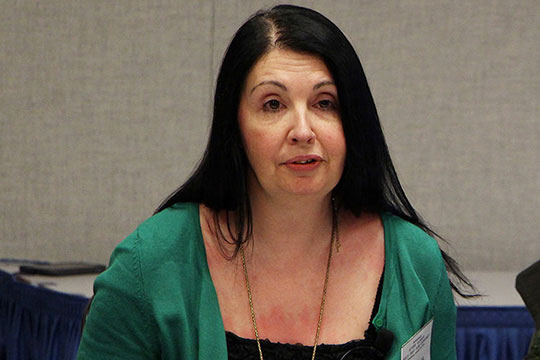Senior Policy Analyst and Program Executive for the European Policy Centre (EPC) in Brussels, Amanda Paul, believes that it would be done as long as Azerbaijan would have leverages to influence on Turkey.
– Ms. Paul, there are predictions that since the centenary of the Armenian Genocide, as well as after the parliamentary elections in Turkey on June 7, new opportunities can be opened in normalization of the relations between Armenia and Turkey, and in terms of communications. Do you see such opportunities?
– I think we need to have a very cautious and approach. I mean if you historically go back you can see that you already have strengthened ties between Armenia and Turkey, so many years have been to this point, it is obviously a point of great difficulty, I mean I am quite hopeful that in the future there will be a further strengthening of ties, I am not sure whether that’s going to be diplomatic ties in the short-term, but maybe in the medium term, but I don’t think that it’s going to amount to recognition of the genocide, a lot also depends on who the new Turkish government is, on whether the AKAP comes back and storms the presidential system, so a lot depends on governance torture in Turkey, but it is a tripping improvement between Armenia and Turkey, particularly on the civil society level of good check to what’s going on. But this needs to be transported into the political ties too.
– To what extent, in your opinion, does the Karabakh problem prevent the normalization of the Armenia-Turkey relations? Sometimes, we get the impression that Turkish authorities seem to be dependent on Azerbaijan on this issue.
Read also
– Definitely, Azerbaijan will continue the same policy line regarding the Nagorno-Karabakh that Turkey should not normalize the relations, open the border, return the occupied territories but clearly there is not much Turkey can do because Azerbaijan has a lot of leverage over Turkey. There is also a strong national center within Turkey towards AKAP and Azerbaijan. So this would be a huge obstacle Well, I think it’s very difficult for the normalization of diplomatic relations. While Turkey and Azerbaijan have a relationship, Azerbaijan to certain degree will be able to dictate to Turkey.
– Armenia is joining the Eurasian Economic Union, and Azerbaijan’s foreign policy vector seems to be changed in recent times towards Russia. In your opinion, how will Russia’s growing role in our region affect the regional developments?
– Well, of course, you know that Armenia’s sovereignty undermined by becoming a part of the Eurasian Union, Russia has formed political, economic “clouds” in Armenia now that it did before. Armenia is almost an extension of Russia, an outpost for Russia. But at the same time Azerbaijan is very important to Russia because it is a key state in the region, so it also wants to have good relations with Azerbaijan, so it is trying to have both things and it can’t because both countries are scared of Russia to put in the right simple terms, but Azerbaijan will join the Eurasian Union, Azerbaijan is scared, but they are not stupid, it will not give up the independence to join the Eurasian Union whatever Russia offers.
– But the Russian-Azerbaijani relations are currently at a very high level, they have become deeper, particularly, for instance, the military cooperation is worthy of consideration.
– In terms of military cooperation Azerbaijan buys Russian arms, but that’s it. In terms of economic cooperation, it is very-very minimal. Azerbaijan is not interested in deepening or integrating with Russia politically and economically, because that means eroding the independent foreign policy. They are interested in deepening their economic cooperation with the West, with Georgia, with some other regions, even with Iran, we have seen it, but not with Russia because deepening any sort of project that is related to Russia in terms of integration is a project where Russia always use this for political reasons, so it is basically guns sales and not much else.
Emma GABRIELYAN, “Aravot” daily






















































